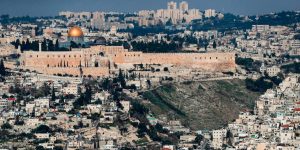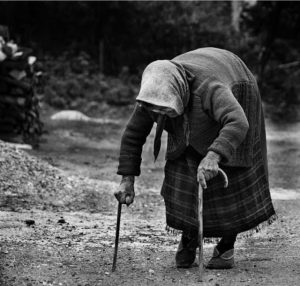
Luke 13:1-9
At that time, some people who were with Jesus told Him what happened to some people from Galilee. They had been burning animals as a gift to God. And Pilate sent some soldiers to kill them.
Jesus replied, ‘Think about those people from Galilee. Perhaps you think that they had done more bad things than other people from Galilee. Do you think that is why they had to die?
No! But I tell you this. All of you have done many bad things. So you must change how you live and you must turn to God. If you do not, you will also die like they did.
And you remember what happened to those 18 people in Siloam. A high building that fell down on them and killed them. Perhaps you think that they had done more bad things than the other people in Jerusalem. But I tell you, no, they had not. All of you have also done many bad things. So you must change how you live and you must turn to God. If you do not, you will also die as they did.’
Then Jesus told this story.
‘A man had a garden where he grew fruit. He had planted a fig tree there. But when he came to look for fruit on it, he could not find any. So he said to his gardener, “Look, for three years, I have come to look for fruit on this tree. But I have never found any. So cut the tree down! I do not think that it should be here. It is wasting the ground.”
“Master,” the gardener replied, “please leave the tree in the ground for one more year. Let me dig round it and let me put some good soil there. If I do that, next year, the fig tree may have some fruit on it. If it does not, I will cut it down for you.” ’
Serious human rights violations and disasters raise questions for us. Why did this happen to these people?
● An easy, pious-sounding answer is that God is punishing sinners with this.
People are apparently bad in Rwanda, Somalia, Yugoslavia and Albania or wherever in the world there are, or have been, disasters.
Fortunately it is not so bad with us, people think proudly.
● Another possibility to deal with such terrible suffering on earth is just as easy, only less pious. It is the way to explain away God’s dealings with the world. Because if such terrible things happen on earth, where is the God of love? One cannot be reconciled with the other, can it?
In our days, people mostly think in the last way about the question of God and suffering.
The people who came to Jesus with the horrifying story about those men from Galilee proceeded from the first reasoning. Those killed people must have lost it with God. It probably was God’s punishment on them.
Or does Jesus perhaps have a different view of that?
Doesn’t he also believe in the omnipotence of God?
Very interesting to hear what this rabbi has to say about this big problem.
But Jesus has no interest in a conversation about such disasters.
It also has no easy answers, for there simply are none.
We will have to accept that things are happening in this world for which we have no explanation. Jesus also does not want a conversation about others. He immediately changed the message that people came with, to a personal appeal.
It’s not about where those other people are in their lives, it’s about where we are, it’s about where you are
Luke 13:1-5 KJV
There were present at that season some
that told him of the Galilaeans,
whose blood Pilate had mingled with their sacrifices.
And Jesus answering said unto them,
Suppose ye that these Galilaeans were sinners
above all the Galilaeans,
because they suffered such things?
I tell you, Nay: but, except ye repent,
ye shall all likewise perish.
Or those eighteen, upon whom the tower in Siloam fell,
and slew them, think ye that they were sinners
above all men that dwelt in Jerusalem?
I tell you, Nay: but, except ye repent,
ye shall all likewise perish.
A disaster that we experience up close, or hear from by the media, is an appeal on us.
▪︎ What if it happened to you, how is your relationship with God? Are you ready to meet Him?
Luke 13:6-9 KJV
He spake also this parable;
A certain man had a fig tree
planted in his vineyard;
and he came and sought fruit thereon,
and found none.
Then said he unto the dresser of his vineyard,
Behold, these three years
I come seeking fruit on this fig tree,
and find none:
cut it down; why cumbereth it the ground?
And he answering said unto him,
Lord, let it alone this year also,
till I shall dig about it, and dung it:
And if it bear fruit, well:
and if not, then after that thou shalt cut it down.
Israel was like a fig tree planted in a vineyard by God.
But when He came looking for fruit, He found nothing.
Yet, He patiently cared for that tree.
But once his patience comes to an end.
God’s judgment will certainly come, and everything that is inconsistent with His will, will not be able to stand. Now it is still the time of His patience for us. A time that we can use to make sure that our relationship with God is in order.
God is still patient with you. You must bear fruit now!
Prayer suggestions:
▪ Pray that God may be patient with the church and with you.
~
PS. Make it your habit to check out my website, as without any good reason my pages or account on Facebook may be gone again.
Bookmark the devotionals or add it to your homescreen. https://devotionals.harryschoemaker.nl
~
Internet: http://harryschoemaker.nl
~
ENGLISH
Facebook: https://www.facebook.com/worldwide.ekklesia/
Twitter: @SchoemakerHarry
Website: https://devotionals.harryschoemaker.nl
~
NEDERLANDS
(Ligt, doordat het niet meer gelezen werd, momenteel even stil)
Facebook: https//www.facebook.com/wereldwijde.ekklesia/
Twitter: Twitter: @SchoemakerHarry
Website: https://overdenkingen.harryschoemaker.nl





